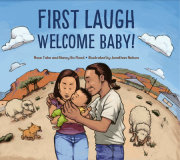Before dawn, Grandpa stepped into the kitchen. I had gotten up in the dark to take an early-morning run. Grandpa looked at me with eyebrows raised, then lit the kerosene lantern rather than switching on a light. I slipped on my running shoes, stopped, and waited.
Grandpa reached for his rifle from above the doorway, handling it as carefully as if it were one of Grandma’s newborn lambs. He sat down and reached for a flannel cloth and a can of oil. With a slow, steady rhythm, he rubbed oil into the dark wood. It was beautiful to watch.
Light from the lantern flickered across Grandpa’s face. He reached into his shirt pocket, took out an arrowhead, and placed it on the rifle. He repeated several phrases in
Navajo, sat silent for a moment, and then returned the arrowhead to his pocket.
Grandpa revered his rifle nearly as deeply as Grandma did the sunrise.
Slowly he stood up, straightened out his stiff joints. I stepped out of the way as he replaced the rifle above the door.
“Going running?”
I nodded. “I won’t be late.”
He looked at the round white clock over the sink. “Watch the time, Teshina. This ceremony is important.”
“If I’m not back when it’s time to leave,” I said as my hand tightened around the door handle, “go ahead without me.”
“This ceremony is for Lori, for her family.” He cleared his throat. “We all need to be there.”
My glance met his. Neither of us said another word.
I stepped out, eased the door shut, careful to not make a sound so it wouldn’t wake Mom. She’d worked the late shift at the hospital in Tuba City and had returned home only a few hours ago. I looked up at my bedroom window. I had always shared that room with my sister. But not anymore. Not since everything had changed.
Already the light was brightening from dark to gray. Soon streaks of red would appear and a haze of gold would pour over the sagebrush and drifts of sand. Then the sun would lift over the mesa’s edge and start warming up the day. So many times my mother’s mother—my
shimá sánı́—had reminded me that each sunrise was sacred, a gift, a time to greet the Holy Ones, a time to receive their blessings.
As always, Grandma had gotten up long before dawn in order to be outside facing east, ready to greet the sunrise. Afterward she began hauling hay and water to her herd of goats and sheep. I walked toward the corral, my steps cushioned by the soft sand. The air was still cool and full of good smells—sweet green hay, smoke from the cook fire, and the sour odor of livestock. Grandma turned, her face brightening as I waved. She continued with her work, tossing handfuls of grain to her animals, calling each by name, scolding the troublemakers. Apricot was easy to spot, because of her rust-colored wool but also because she was always nudging close to steal an extra mouthful of grain. Grandma laughed, pushing Apricot away from the feed bucket. Old Jack, with his long scraggly beard, shoved his head in as soon as Apricot’s head was out. Grandma pulled Jack away and tossed oats to both of them. Then she gave an extra handful to Betty. I smiled. Grandma had nicknamed that goat Betty-Boobsy because Betty made more milk than any other three goats combined.
I waved again and kept on walking, past the horse shed and the horse corral. Blue was circling round and round, kicking up dust and whinnying his complaints. I shook my head. I hated that horse. He was mean to everyone except Gaby, and he was hotheaded and stubborn. It was his fault that my sister’s ankle had gotten smashed. That translated into no more running track, no more trophies and blue ribbons. My sister lost all chances for a college sports scholarship. Then what did she do? She dropped out of college and enlisted in the army—how stupid was that?
My stomach did a flip-flop. We didn’t need any more fallen warriors around here.
A curve of sun broke over the mesa’s edge, and I was still staring at Blue.
Get moving, Tess. Stop thinking about stuff you can’t change. Run! I breathed in, said a little prayer to the spirits just in case they really were listening, and took off. My body started feeling alive, and my mind quieted. I looked to the horizon and ran full out. Someday I’d run all the way to Elephant Feet. Gaby had promised to race with me. Nonstop. But now my sister isn’t running—she’s marching. My throat started getting tight.
Stop thinking, Tess. Just run. A steady rhythm settled in, my legs reaching, arms pumping. Breathe. Run. Nothing else.
The horizon shimmered as if the Holy Ones were pouring out their blessings. Running worked its magic. My heart pounded, and I was flying. Running free. Running and wishing I’d never have to turn around.
I don’t want to go to the ceremony. Not this one, not today. I stopped. Breathing came in fast gulps. I yelled to the sky, “Gaby, why aren’t you here? Lori was your friend!” Overhead a raven swooped low, cawing as if scolding me. I stopped. Breathing . . .
I kicked at the sand, turned, ran slowly back home.
Mom, Gramps, and Grandma, dressed in their best Navajo attire, sat around the kitchen table, sipping coffee, waiting. As soon as I opened the door, Mom glanced at the clock. No one said a word. I rushed through a cold shower, threw on some fresh clothes—my good jeans and the Western shirt Mom had washed and ironed the day before. I hurried outside. Mom had loaded the truck bed with gifts for Lori’s family. Grandpa sat in the front on the passenger side, his fingers tapping the sill of the rolled-down window. Grandma sat in the middle. Dad was missing—still in Phoenix, working overtime. He had transferred to Phoenix when Gaby started college. Not that he wanted to, but it meant a higher position in the computer department and more pay. When Gaby found out, she threatened to drop out of college and get a job. Both Mom and Dad had snapped back, “Don’t you dare.”
Well, she
had dared and dropped out. But not for a job.
I climbed into the back of the truck, sat down, and off we went.
The truck bumped along the rutted driveway. Red dust swirled behind us. We turned onto the main road, and my insides got jumpier.
I sat upright, my back pressed against the cab window, and watched the long highway unwind. It felt strange sitting in the truck bed all alone. Usually Gaby and I sat huddled next to each other, singing silly songs and telling goofy jokes, like when we were younger. Riding in the truck bed was our special time. Even after Gaby left for college, every Friday after school I’d ride along with Mom to Flagstaff. We’d do some shopping, pick up Gaby, then head back home. I’d talk nonstop for a while, filling her in with all the latest Rez gossip. For the entire drive it was just the two of us with the wind whipping by.
Once when I was little, Gaby had leaned in close and said, “I’ve got a secret—promise not to tell?” Of course I had promised.
“I have a boyfriend and he kissed me, a big long kiss.” She had grinned. “Tess . . . I liked it.” She had a ridiculous look on her face. “We’re going to do it again.”
As soon as we had gotten home, I hopped out of the truck and told Mom. I didn’t want my sister kissing some slobbery boy. Gaby hadn’t spoken to me for a week. Finally
I had written her a long poem about my sorry, sad heart. Even then I had to agree to do her share of dishes for an entire month.
Tuba City came into view as we drove over the final set of hills. Not much to see. Up ahead was the one shopping center—a grocery store, a pizza place, Frank’s Dry Goods store, and a Chinese takeout restaurant. Rows of government housing, identical, tan-colored houses with blue metal roofs, lined the streets. All along the barbed-wire fences, shreds of white grocery bags flapped like broken-winged birds. Our truck slowed, and we turned just before the post office, where the US flag flew at half-mast.
My stomach did another flip-flop. Half-mast. For Lori.
Traffic was backed up, a long line of pickups and SUVs. We inched along to the school and finally parked in one of the last remaining spaces.
Mom climbed out and hurried around to help Gramps and Grandma out of the truck. I didn’t move. Mom frowned at me. “Teshina, it’s time.”
I swung myself over the side of the truck. Grandma patted my hand. Grandma looked at Mom. They often said a lot to each other without saying a word. Gaby and Mom were like that too.
Car doors slammed shut. No one spoke. No one shouted hello. An uneasy quiet hovered over the parking lot. I followed my family into the gym.
I felt the drums before I could see them.
Their vibrations echoed through my bones.
Boom-BOOM! Boom-BOOM! I felt scared like when I was little. I wanted to reach up and hold on to my big sister’s hand.
Copyright © 2016 by Nancy Bo Flood (Author); Shonto Begay (Illustrator). All rights reserved. No part of this excerpt may be reproduced or reprinted without permission in writing from the publisher.








